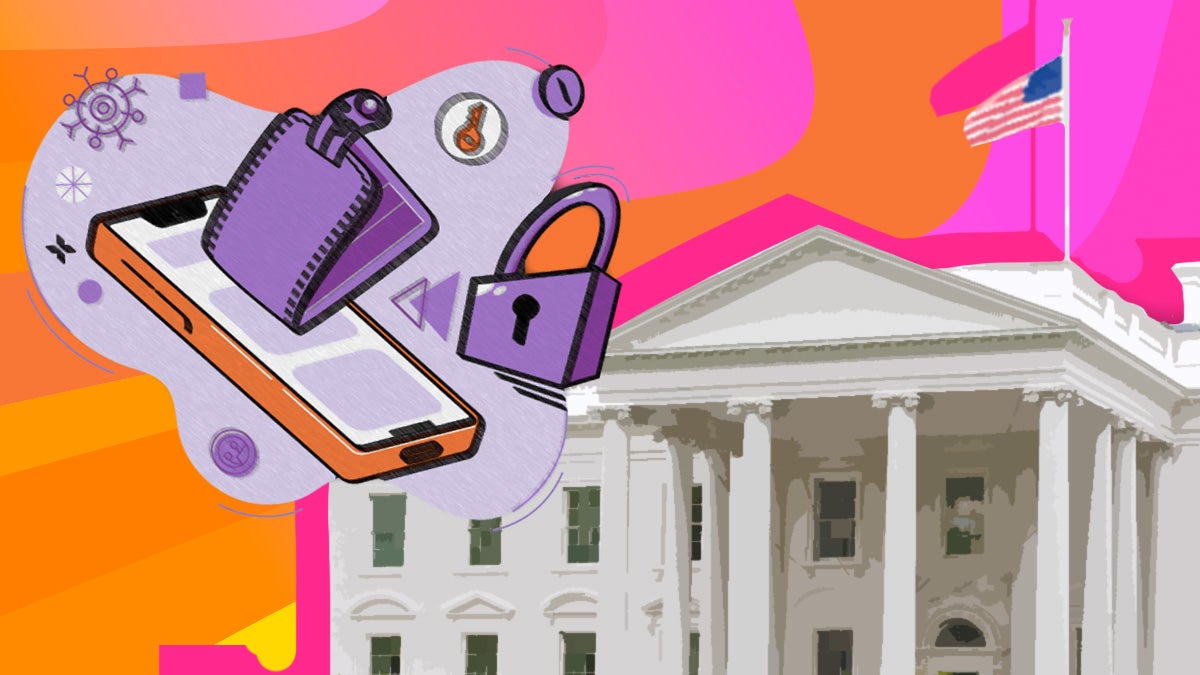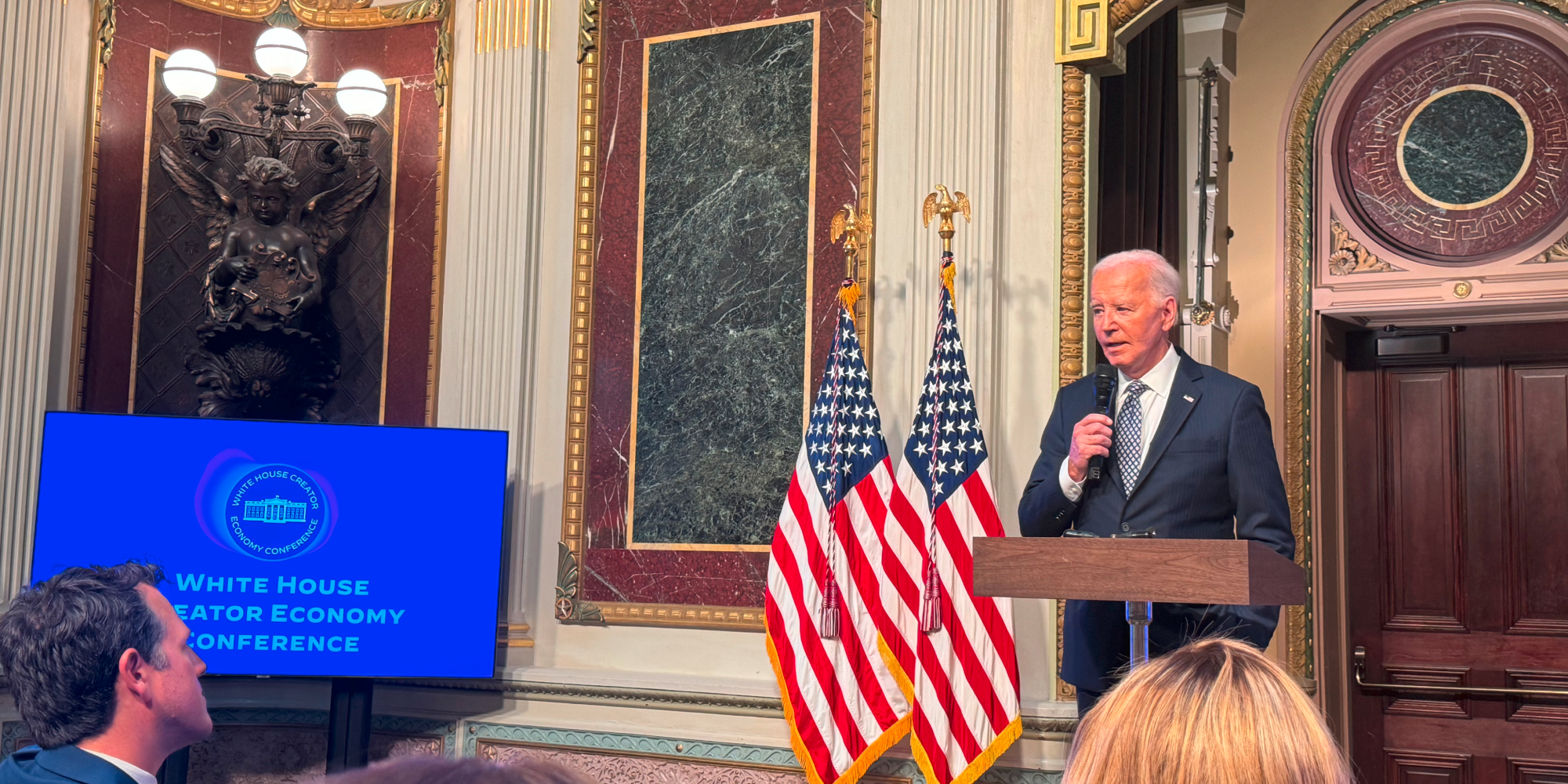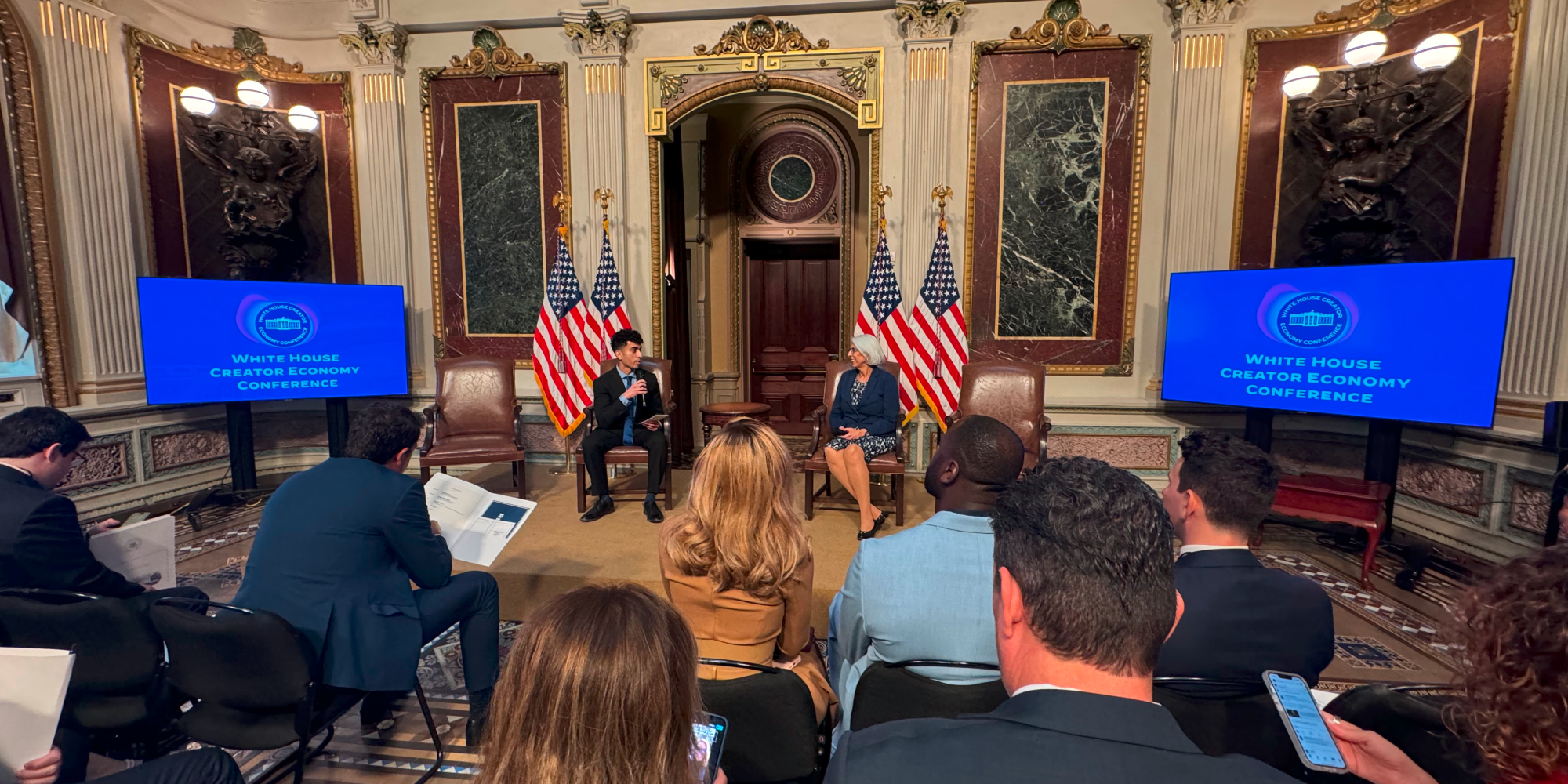
Franklin Graves attended the White House Creator Economy Conference in his capacity as an adjunct law professor and researcher at Emerson College and New England Law, focused on the intersections of law, policy, and the creator economy. The following is an account of his personal experience, published by Passionfruit.
On August 13, a diverse group of 100 creators, with a combined audience reach of over 110 million people, and creator economy professionals attended the first-ever White House Creator Economy Conference.
The six-hour event took place in the Eisenhower Executive Office Building next to the White House. It featured five discussion panels and one-on-one conversations. Topics for the day focused on mental health, artificial intelligence (“AI”), fair and equitable pay, and long term financial stability for creators.
The first-of-its-kind event placed the spotlight on the creative minds who are shaping the digital landscape, along with the voices supporting them from talent agencies, start-ups, and small businesses.
Notably missing were representatives from social media platforms and brands, which historically have their own established connections and lines of communication to regulators and policymakers in Washington, D.C.
Attendees from established entertainment and media industries, such as film, television, sports, music, were noticeably absent except for a handful of executives from creator-focused divisions of such companies. A select group of journalists were present for the first few sessions, but remained seated in the upper balcony area of the room in a manner clearly intended to separate them from the event.
According to sources connected to the event, the White House received thousands of applications, but only 100 people landed an invite. Invited creator economy business leaders and executives suggested no more than one person from a company received an invitation. Additionally, the room capacity reportedly played a role in further limiting the number of invitees, even from inside the White House.

The President Is Listening
The first half of the conference featured on-the-record panels on industry topics. The second half included breakout sessions with members of the White House Office of Digital Strategy and other Executive Branch agencies.
President Biden made an appearance during a much-anticipated 15-minute slot on the schedule, which the conference labeled with a non-descript name, “Remarks.” The room noticeably changed as the White House press corps came in, and C-SPAN camera crews set up to capture the moment.
It quickly became clear that what was supposed to be only a four-minute delivery from the President was turning into something much more. He began delivering prepared remarks from the stage, but quickly dismissed reporters from the room to have a more intimate conversation with the rest of us who were invited.
For more than 20 minutes, he spent time walking through the crowd, taking questions, and even doing the dougie with creator Duke Alexander Moore (a moment recreated later in the afternoon with White House Press Secretary Karine Jean-Pierre).
At one point, Biden jokingly noted, “That’s why I invited you to the White House. Because I’m looking for a job,” a clear nod to the last few months of his presidential term.
Surprisingly, speakers did not mention the looming legislation that might force the sale or nationwide ban of the platform, which President Biden supports. However, the larger issues the legislation aimed to tackle, like algorithmic transparency, were heavily discussed.
“You are breaking through in ways that have never done before, at least in the [last] 800 years,” Biden said. “What I came to say to you is there has been a decline in trust across the board.”
The Mental Health of Creators and Audiences
A recurring theme from creators became evident when the discussion around mental health centered on the lack of education about the impacts of social media use as children grow up and become exposed to digital worlds.
When mentioning the controversial Kids Online Safety Act (“KOSA”), Neera Tanden, Domestic Policy Advisor, noted that the current administration has been supportive of “tools to control parents and young people themselves to create some distance from the judgment and criticism.”
The discussion also focused on what, if anything, platforms can do to support the mental health of creators, such as regulations prohibiting pseudonymous user accounts and requiring user authentication before being eligible to comment.
Whether such regulations would ever be proposed or not, it highlighted the extent to which creators desire to have working environments that are not toxic or lead to high rates of depression.
AI’s role in the future of the creator economy also remained the subject of much debate and unease for creators. The morning AI fireside chat featured Gohar Khan, a YouTuber and co-founder of college admissions company Next Admit, interviewing Dr. Arati Prabhakar, Director of the White House Office of Science and Technology Policy, about what the government is doing to address concerns and optimism that surrounds AI.

Dr. Prabhakar noted that bias, discrimination, data privacy, and the displacement of workers remain critical points of focus for the administration. She also expressed support for establishing ways to compensate or reward people for their contributions to building a complex model, including whether that involves new ways of thinking about intellectual property rights.
Amplifying Creator Voices
Creators are an often-overlooked and misunderstood aspect of the economy when it comes to sharing their voices with regulators and policymakers. The conference solidified that such an approach is changing, at least when it comes to the current White House administration.
Additionally, the presence of the entertainment guild SAG-AFTRA was undeniably there, from the unofficial pre-event social event they co-hosted and the Guild’s participation in some of the day’s events.
Questions remain as to what role, if any, the organization (which represents some creators) will be able to take on in the creator economy. Or, if the Guild will be able to establish itself in the same robust way it has in other industries, such as film and television or video games.
The impact of this event on future policy from the White House remains unclear due to the administration change on the horizon. But, I feel confident in the success of creators advocating their needs at the conference — for things like affordable, available healthcare, retirement plan access, and financial stability to enable becoming a full-time creator.
The general sentiment from creators and professionals that I talked with at the conference was that the President’s administration was listening and capturing the stories of creators as much as possible. The event brings much-needed political recognition to the creator economy and ensures creators will have a seat at the table for any future policy decisions.
Further reading:
- We’re All Joe Biden’s Oomfies, Apparently
- Dear President Biden: TikTokers Pen Open Letter to ‘Stop the Ban’
- The Big Tech Senate Judiciary Committee Hearing Was a Circus, and Creators Need To Pay Attention
- Senate Passes Landmark Bills To Protect Children Online
- Dear Senators, the ‘Kids Online Safety Act’ Won’t Protect Every Minor




